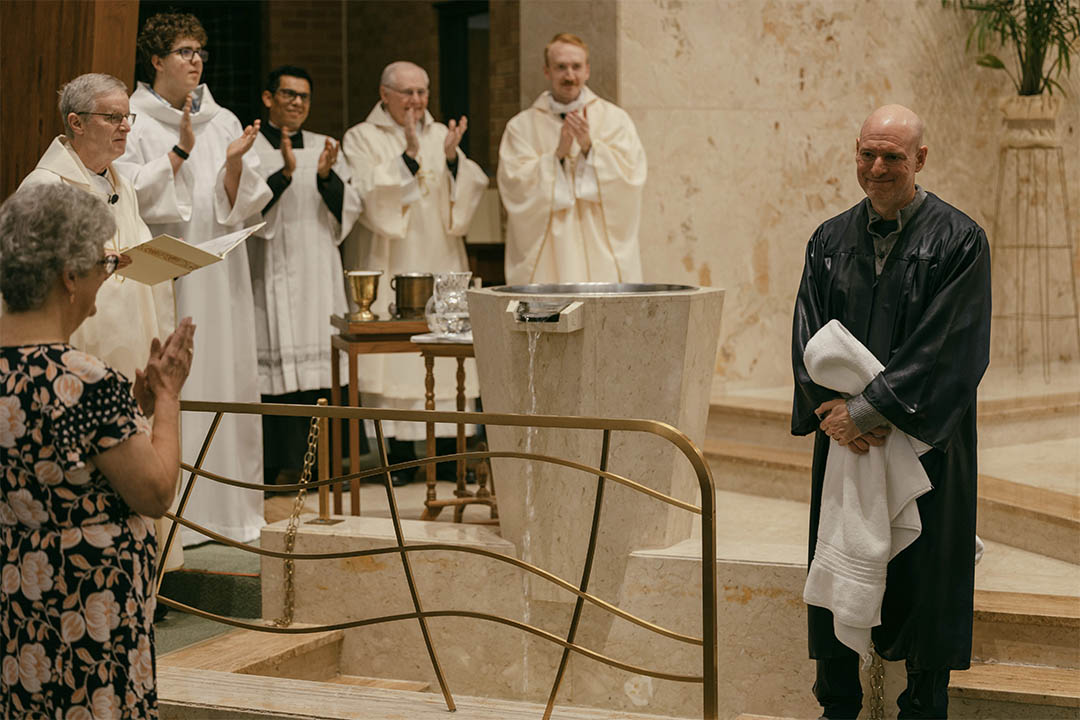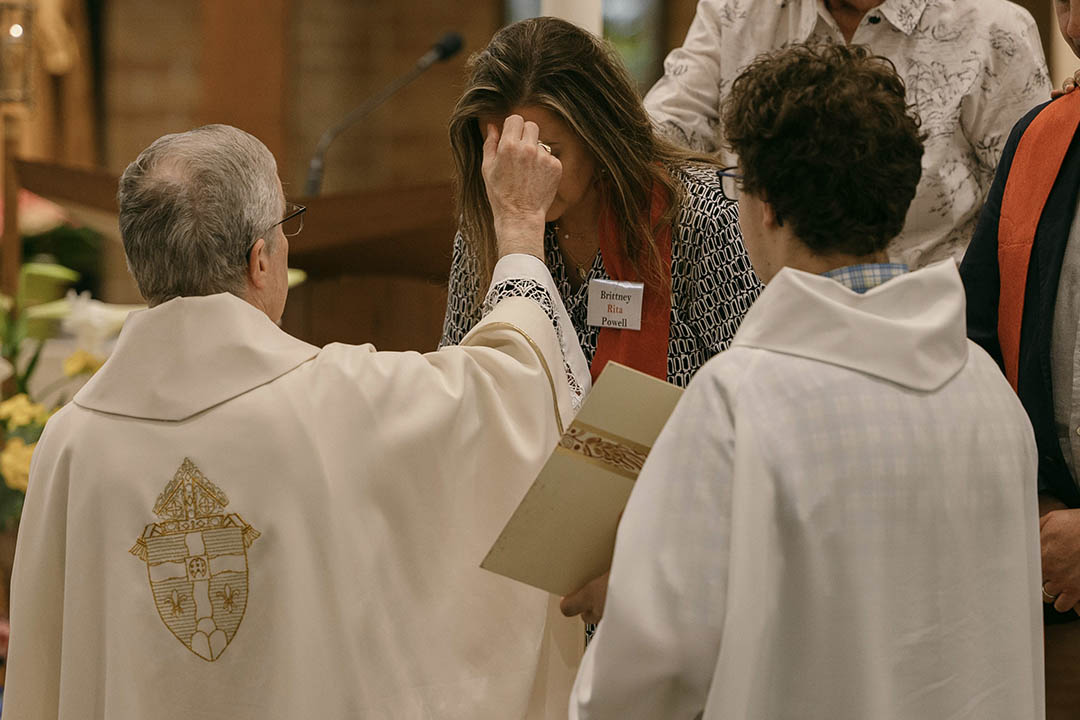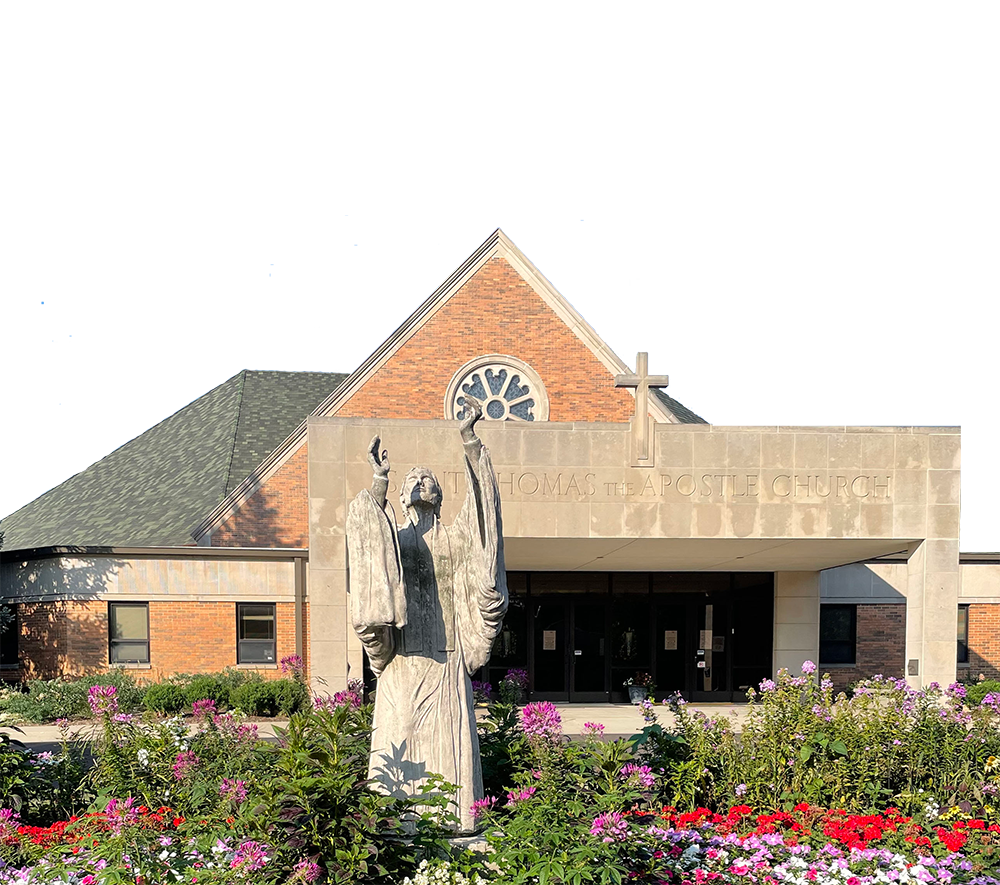OCIA: Order of Christian Initiation For Adults
O.C.I.A (Order of Christian Initiation for Adults) is a process for welcoming new members into the Roman Catholic Church.
- Those who are not baptized
- Those who are baptized in another Christian tradtion and who seek to enter Full Communion with the Catholic Church
- Baptized Catholics who never had the opportunity to receive Holy Communion and Confirmation
Those who seek to join the Catholic Church become members of the Catechumenate: an ongoing process that meets people where they are on their faith journey and gently initiates them into the life of the parish and the Catholic Church.


Catechumens and candidates experience the weekend Liturgies with a small community of teachers, sponsors and others on the journey. They study the Sunday readings together, “Breaking Open God’s Word”.


Seekers also attend teaching and faith-sharing sessions with Catechists (teachers of Catholic tradition) from the parish who have been prepared to teach. St. Thomas Catechumenate is a year-round process. One’s readiness in the conversion process determines the actual time of reception in the Catholic Church within a community celebration.
- The journey is rooted in community and personal growth, offering participants time to learn, pray, and discern their relationship with God while being supported by sponsors and parish members.
- OCIA is not a class but a spiritual journey, allowing each person to move at their own pace as they explore faith, Scripture, and the teachings of the Church in preparation for full communion.
- The OCIA process is open to everyone, including those who have never been baptized, those baptized in another Christian tradition, or baptized Catholics who wish to complete their sacraments.
- The process follows several key stages, beginning with inquiry and leading to the sacraments of initiation, allowing participants to grow in understanding and faith at each step.
- The celebration of the Easter Vigil holds special significance, as many participants receive their sacraments and are officially welcomed into the faith community during this powerful liturgy.
- OCIA emphasizes lifelong conversion, encouraging new members to continue learning, serving, and deepening their relationship with God long after the formal process is complete.
Who can join the OCIA process?
Anyone interested in learning about the Catholic faith can join—whether you’ve never been baptized, were baptized in another Christian tradition, or are a baptized Catholic seeking to complete your sacraments.
How long does the OCIA process take?
The process typically lasts several months to a year, depending on each person’s readiness and spiritual journey. It is not rushed, allowing participants to grow in understanding and faith.
What Can I Expect When Participating?
Participants gather for prayer, Scripture study, discussion, and reflection on the teachings of the Church. The meetings also help build community and support among participants and sponsors.
What is the role of a sponsor in OCIA?
A sponsor serves as a mentor and guide, offering encouragement, prayer, and friendship to help the participant navigate their journey of faith.
Do I have to decide right away to become Catholic?
No. The OCIA process allows time for discernment. Participants are invited to explore and ask questions without pressure or obligation.
When do people typically receive the sacraments?
Most participants receive the sacraments of initiation during the Easter Vigil Mass, one of the most beautiful and significant celebrations in the Church year.
What Happens for children who did not receive their sacraments on-time?
Children, youth and teens who are not baptized or who are out of ordinary time in sacrament preparation are incorporated into the parish OCIA process through the Religious Education Programs for children and youth.
What happens after completing OCIA?
After receiving the sacraments, participants are encouraged to stay active in parish life, continue learning about their faith, and find ways to serve within the community.
How do I get started in OCIA?
Contact the Adult Faith Formation Office: 355-8980 ext 138 or send an inquiry to mainoffice@stapostle.org.



